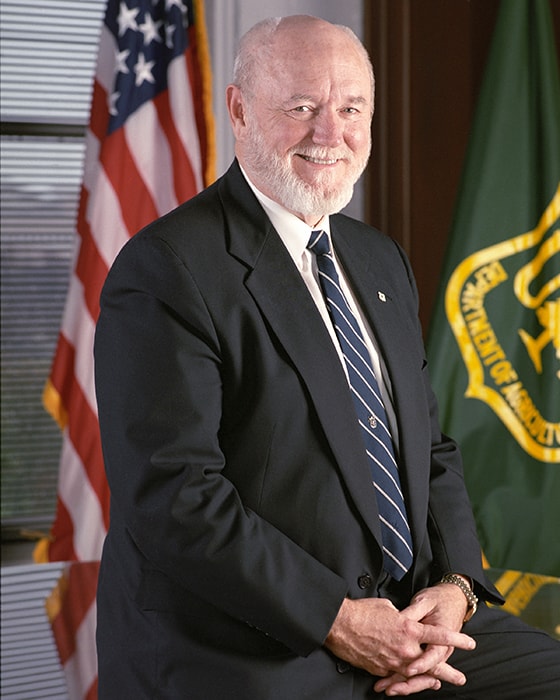While on the timely topic of Administration transitions, we were remembering Chief Jack Ward Thomas. I ran across this classic speech he gave in 1992, an Albright lecture at Berkeley (30-ish years ago, now can you believe it?), and thought I’d place it in conversation with Carrie Menkel-Meadow’s thoughts from yesterday.
His thinking appears to be that because plan revisions drag on for so long, and the documents are so long and technical, that the process leads inexorably to more conflict. People without professional funding can’t effectively participate, so it’s left to interest groups. And the psychology of representing an interest group may lead to different options than with members of the public. Here’s a history of interest groups and how political scientists think about them, from James Madison onward.
Participation by interest groups in forest planning has proven difficult to organize, receive, evaluate, and act upon. Clearly, average citizens can not or will not devote the time necessary to participate effectively over the long haul. And, as the planning process dragged on for over a decade, many of the initial enthusiastic participants dropped out exhausted by the time required for meeting after meeting and review after review of documents that were increasingly technical and mathematical and evermore voluminous.
Some of the “hard cores” with abiding interest formed well-organized groups that grew and were molded into organizations with the aim of providing resources – political, technical, legal and financial – necessary to ensure increased effectiveness in the forest planning game over the long run. As these involved individuals formed themselves into organized advocacy groups, the professional gladiators came to dominate the arena of natural resource politics and planning, resource allocation, and management.
The process of exerting influence over the management of the public’s forests has became steadily more adversarial, sophisticated, and expensive. Amateurs faded more and more into the background save for providing the resources for the gladiators.
JWT’s observations are fascinating placed in conversation with Carrie Meek-Meadow from yesterday. Interest groups are an important part of our political system. What are the pros and cons of designing large-scale and notably infrequent processes that necessarily (or not?) depend on interest groups’ “paid gladiators”? I read some of the objections to the Colville plan, and ability of the people to participate, as JWT spoke of in 1992, was apparently still an issue. I read one comment from a person hired to represent a certain viewpoint where he stated that even he couldn’t make his way through the documents. My experience with the development of the 2012 Planning Rule was that it was considered a success because interest groups were behind it (at least the more influential ones during that Administration). But in pleasing them, somehow, perhaps, JWT’s concern was overlooked.
I’d really like to hear from some folks who worked collaboratively, or as individuals, on recent forest plans.

I was involved in the Colville NF plan revision from the outset. The Northeast Washington Forestry (now Forest) Coalition was formed in 2003 and participated in the entire process. The Forest Planning Summit (March 2006 to January 2007) involved participation of 80 individuals. NEWFC was promised by then Supervisor Rick Brazell that what was agreed to would be in the plan. Unfortunately, Brazell’s then deputing Rodney Smolden – now CNF Forest Sup – didn’t abide by those agreements selecting a plan alternative that ignored all those years of investment.
For his role, he got a Chief’s award. How did he do it? Great staff and collaboration. Never once mentioned NEWFC. NEWFC made the man what he is. For that we now get clearcuts just like we did in the old days.
This will not be forgotten. The FS cannot be trusted!